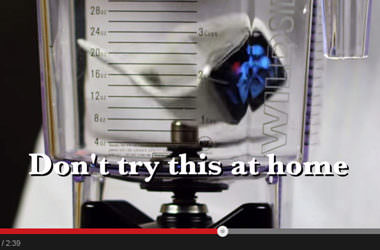for me: vormerken und testen
WP-Taggerati
* Dead easy tagging from within your posts. Create tags linking to the local tags page, external URL’s or tags that don’t appear anywhere in your posting except for the overview of tags used in your posting
* Zero maintenance database. Don’t worry about adding or deleting tags or posts containing tags. The database takes care of itself automatically.
* Customizable tag cloud which appears on the tags page but can also be used anywhere else on your blog. You can limit the amount of tags shown like in the example on this site’s sidebar
* Lists of tags used per-post
* Lists of posts having the same tag(s)
* Local tag aggregator pages showing the above mentioned lists, related images from flickr and a sexy Ajax feed-fetcher to surf related links from other sources.
* Fully configurable local tag page
* Configurable lists of posts related to tags
Forenbeitrag Unterschied UTW und Taggerati
produktive Umsetzung >>
Neue Stellenangebote

|
Growth Marketing Manager:in – Social Media GOhiring GmbH in Homeoffice |
|

|
Content Creator Social Media (m/w/d) CSU-Bezirksverband Augsburg in Augsburg |
|

|
Social Media Manager (Fokus: Community Management Supervision) (w/m/d) – befristete Elternzeitvertretung für 18 Monate Yello Strom GmbH in Köln |








[…] 2. “Verwandte Stichwörter” = Liste aller Tags, die mit dem Tag des angezeigten Artikels (Bsp. WM Projekt => WM2006) schon einmal zusammen in anderen Artikeln vergeben wurden. Beispiel: alte Artikel 1 = “rot”, “Geige”, alte Artikel 2=”Banane”, “Geige” neue Artikel 3 =”Geige”, Ergebnis: Verwandte Stichwörter = “rot”, “Banane” Problem: Klappt seltener, je weniger Tags pro Artikel verwendet werden. Denn verwandte Tags werden anscheinend über eine AND-Beziehung gesucht, was ja auch Sinn macht. So ist die Trefferwahrscheinlichkeit bei mir hoch, daß das Tag “Wp-Plugin” das Tag “Wordpress” findet, da ich diese beiden Tags häufig zusammen verwendet habe. Aber tagge ich einen Artikel mit “Wordpress” und “WP-Plugin” zugleich, kann das System nur noch weitere Tags finden, die mindestens einmal zusammen mit den beiden genannt wurden, eben eine AND-Abfrage. (siehe einen 1-Tag Artikel, siehe einen 2-Tag Artikel) Funktion in single.php: UTW_ShowRelatedTagsForCurrentPost(’htmllist’,’’,’5′) […]